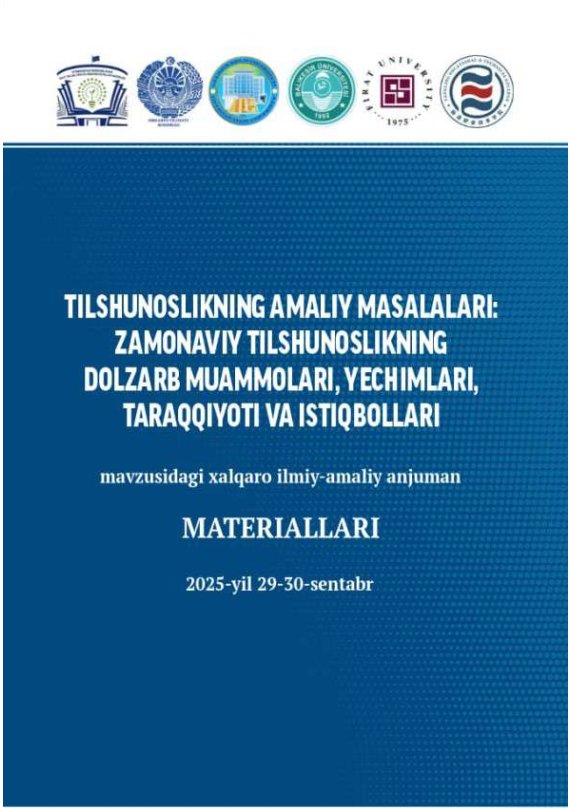SEMANTIC INTEROPERABILITY AND LINGUISTIC VARIATION IN THE STUDY OF LEGAL TERMINOLOGY
Keywords:
Legal language, interoperability, Jurispuredence, semantic analysis, equivalence, legal discourse, legal translation, legal system.Abstract
The article examines how linguistic differences affect the interpretation and application of legal terms across languages and legal systems. It highlights the challenges of achieving semantic interoperability in legal discourse, particularly when terms lack direct equivalents or display divergent cultural and systemic meanings. Drawing on linguistic theory, lexical semantics, and jurilinguistic analysis, the study explores structural, semantic, and functional aspects of legal terminology. The article emphasizes the importance of precise linguistic analysis for legal translation, comparative law, and the development of multilingual legal resources.


